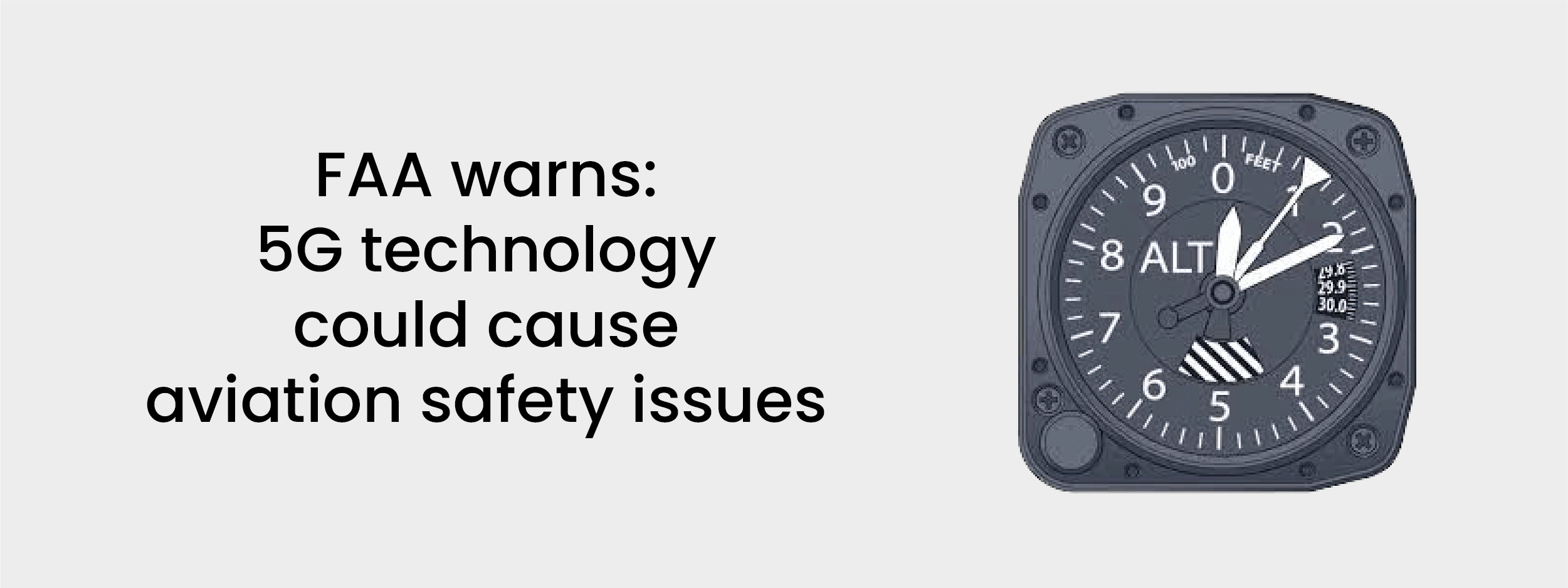We have never heard before that mobile technology like 2G, 3G, or 4G could disturb air traffic. But latest FAA (Federal Aviation Administration) warned that 5G could cause aviation safety issues. The 5G may interfere with aeroplane safety equipment that relies on radio frequencies.
Table of Contents
How are 5G radio signals interfering with aeroplane safety equipment?
According to FAA, 5G C-Band radio signals affect flight altimeter. It causes inaccurate altitude data, which helps the pilot detect close to ground level while landing. The altimeter also helps in poor weather conditions to determine the location and safely land the aeroplane.
Many telecom companies are about to launch or have a running 5G network in the United States. AT & T and Verizon previously mentioned that they are already working to limit 5G interference with radio devices. Whereas others said that 40 countries worldwide use the 5G spectrum. And no interference was reported with aviation safety equipment.
However, FAA asked to mitigate the 5G transmitters that malfunction the aviation equipment. And FCC also joined FAA to monitor new technology implementation and safeguard the air traffic.
5G technology and precautions for aviation safety:
5G technologies have been operating in many countries for a while, but none of them raised concerns for aviation safety. But FAA raised concerns about altimeter malfunction issues when the flight is at a low altitude.
Major telecom companies in the United States spent billions of dollars behind the 5G mobile network. But due to recent aviation safety concerns, the government asked to limit 5G network interference. Also, a pilot may request to turn off your phone or put it in aeroplane mode during your travel.

Should Australia concern about aviation safety with 5G networks?
There is no concern raised about aviation safety and 5G interference in Australia. 5G has been operating in Australia for a while now, and companies like Telstra, Optus and Vodafone expanding it simultaneously.
Currently, telecom companies in Australia focusing on standalone 5G networks to meet the high-speed internet requirements. They are looking at 5G as an alternative to NBN, where many Australians still struggles to get over 50Mbps internet speed.
Australian 5G networks are reliable for high-speed mobile data connectivity and cost-effective. Indeed, many 5G home broadband plans are cheaper than NBN services and provide reliable service. You may see 5G network usage in many IoT industries like Smart Home and GPS Tracking.
But after FAA flags about aviation safety, Australian aviation may check for 5G interference. And may take further steps to safeguard the Australian aviation industry and protect Australians.
Final Thoughts:
Mobile technologies and radio frequencies are a significant part of communication between people and electronics equipment. And the radio frequencies are regulated by local governments, including license-free spectrums. Every device that uses radiofrequency should follow countrywide rules before launching products to any country.
Indeed, mobile technologies require paid spectrum license to operate in any country. And 5G network devices manufacturers follow all government rules and regulations before commercialising it. They do enough testing before implementing a live network, so there are chances of false alarms. But the government shouldn’t take a risk with aviation safety and mitigate every problem caused by radio interference.